From the Chicago Reader (April 1, 1988). — J.R.
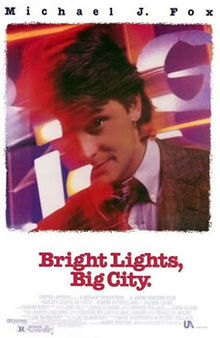
BRIGHT LIGHTS, BIG CITY
* (Has redeeming facet)
Directed by James Bridges
Written by Jay McInerney
With Michael J. Fox, Kiefer Sutherland, Swoosie Kurtz, Phoebe Cates, Frances Sternhagen, Tracy Pollan, Jason Robards, John Houseman, Dianne Wiest, and William Hickey.
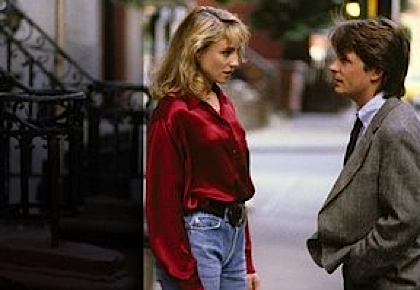
Considering the thinness of Jay McInerney’s 1984 best-seller, one might imagine that the movie version would stretch out the material, or at least fill in some of the blanks. But by and large, the original text is treated as if it were engraved in marble, and I doubt its fans will have any cause for complaint.
If Melville, Twain, Faulkner, Hemingway, Fitzgerald, Algren, Updike, and Styron have never received a tenth of the respect from Hollywood accorded here to Jay McInerney, this may be because, unlike McInerney, they are writers whose styles and formal structures are easily lost in translation. McInerney’s book, written in the present tense and in the second person, is already aiming for the immediacy and easy identification available from a movie, so most of the work of the filmmakers in putting it across is relatively sweat-free. In fact, given the charisma of Michael J. Fox and the spit and polish of director James Bridges — not to mention the music of Donald Fagen (of Steely Dan) and the cinematography of Gordon Willis — it could easily be argued that the movie fulfills the novel’s designs better than the novel does. Read more
From the Chicago Reader (March 25, 1994). — J.R.
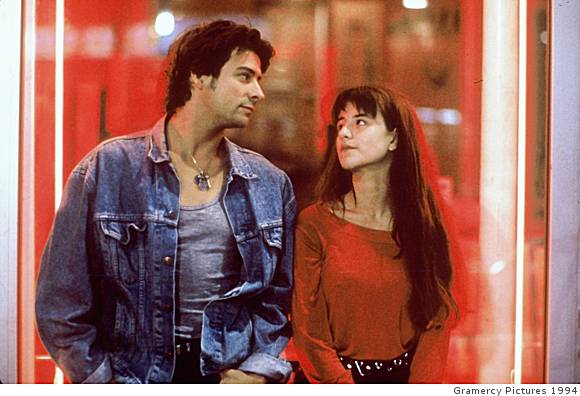
*** SAVAGE NIGHTS
Directed by Cyril Collard
Written by Collard and Jacques Fieschi
With Collard, Romane Bohringer, Carlos Lopez, Corine Blue, Claude Winter, Denis D’Archangelo, and Jean-Jacques Jauffret.
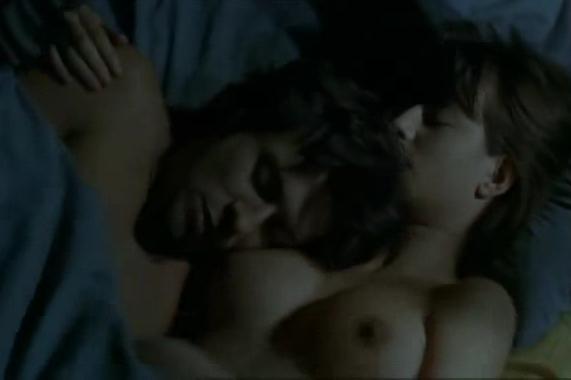
If memory serves, the first time I ever heard of Sylvia Plath was the first time a lot of other people heard of her — in the mid-60s, a few years after she committed suicide, when her posthumous collection Ariel was published. I recall a teacher of mine in graduate school remarking that Plath’s suicide validated her late poetry, implying that if she hadn’t actually taken her own life, poems such as “Lady Lazarus” and “Daddy” wouldn’t have meant as much as they did — indeed, may not even have been “as good.”

The remark offended me at the time, but in retrospect I wonder if in some awful, seldom-acknowledged way my teacher was right. Many of us prefer to believe that works of art should be self-justifying, and therefore demand to be taken on their own terms, without “outside” information, but the fact remains that the hyperactive media and life itself rarely offer us that luxury. Take, for instance, these two consecutive stanzas in “Lady Lazarus” — “Dying / Is an art, like everything else. Read more
From the October 2010 Sight and Sound. I regret a few errors that crept into this piece as originally published, all of which were my own fault and all of which are corrected here. — J.R.
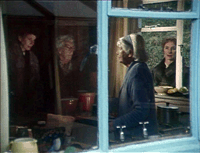
In the interests of full disclosure, I should mention at the outset that Françoise Romand has been a good friend for over two decades. But I hasten to add that she became a friend because of my immoderate enthusiasm for Mix-Up (1985), her first film — one of the strangest as well as strongest documentaries that I know.
To make matters even more mixed-up, I should also point out that, on the region-free DVD bonus of this hour-long French documentary in English, Françoise, after interviewing herself in French, shows her filming of my talking head in English while I attempt to explain why I find her film so powerful and exciting. What follows represents another try.
Filmed over just twelve days, but recounting a multilayered real-life story that covers nearly half a century, Mix-Up recounts and explores what ensued after two English women, Margaret Wheeler and Blanche Rylatt, respectively upper-middle-class and working-class, gave birth to daughters in November 1936 in a Nottingham nursing home, and the babies were inadvertently switched. Read more
From the Chicago Reader (August 26, 2005). — J.R.
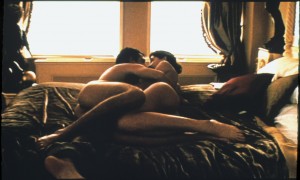
9 Songs
** (Worth seeing)
Directed by Michael Winterbottom
With Kieran O’Brien and Margo Stilley
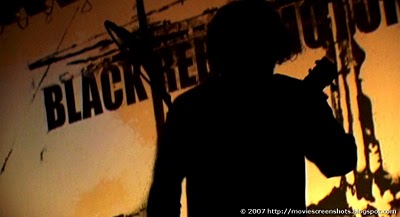
Sex, drugs, and rock ‘n’ roll used to be a commercially surefire package that today seems less automatically reliable. Which is presumably why Michael Winterbottom’s 9 Songs arrives in Chicago 15 months after its Cannes premiere — during the dog days of summer, when art-house films that distributors aren’t quite sure what to do with tend to surface. Sex is the main course, the side dishes are nine concert performances given by rock bands, and the spices are a few glancing references to cocaine and prescription drugs.
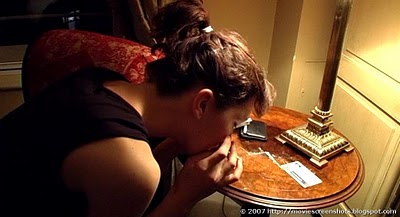
Even though it has few of the narrative elements we usually expect, this 69-minute movie is surprisingly fresh and original. The mise en scene, the editing (by Winterbottom and Mat Whitecross), and the camerawork by Marcel Zyskind keep it lively and attractive. The lighting is often exquisite, and the actors sometimes seem like inspired jazz players.
9 Songs is intermittently arousing, but though the sex is real, it isn’t really porn. Jonathan Romney offers a pretty precise description in the London Independent: “Essentially, 9 Songs bets us that it can make sex stand for all the other things that routinely convey character.” Read more









